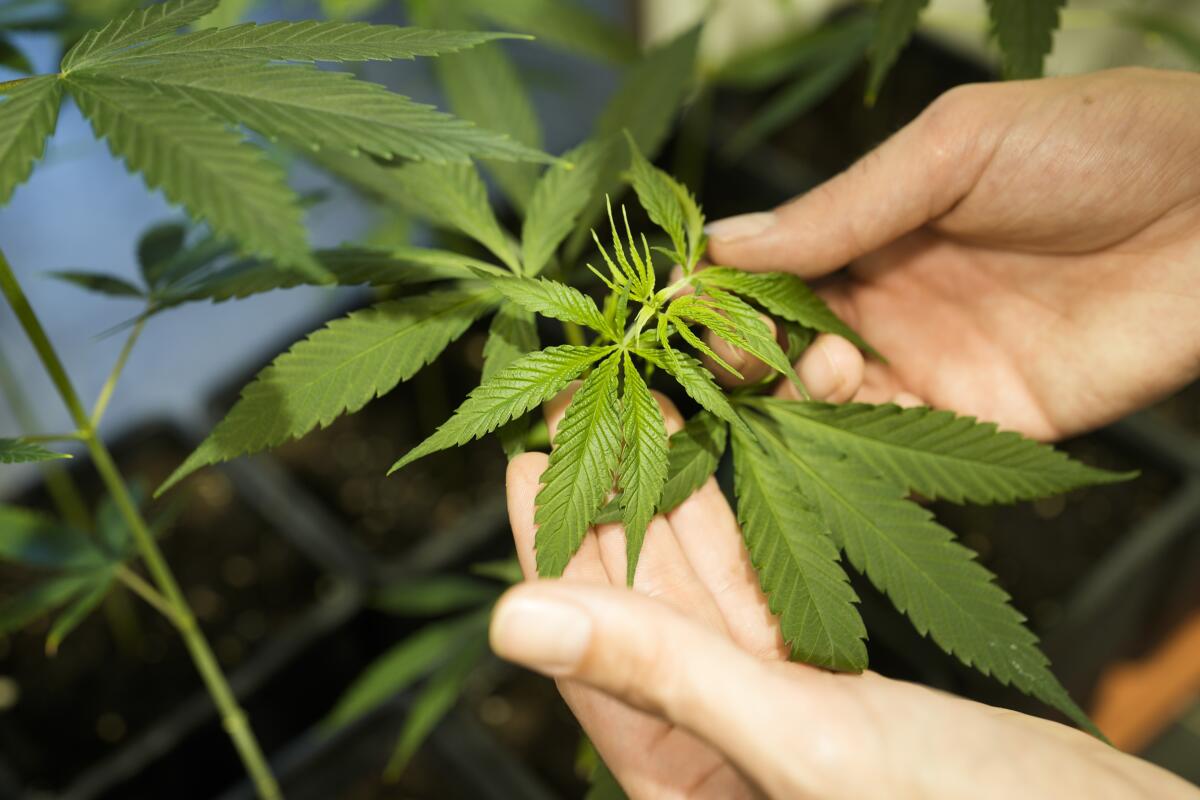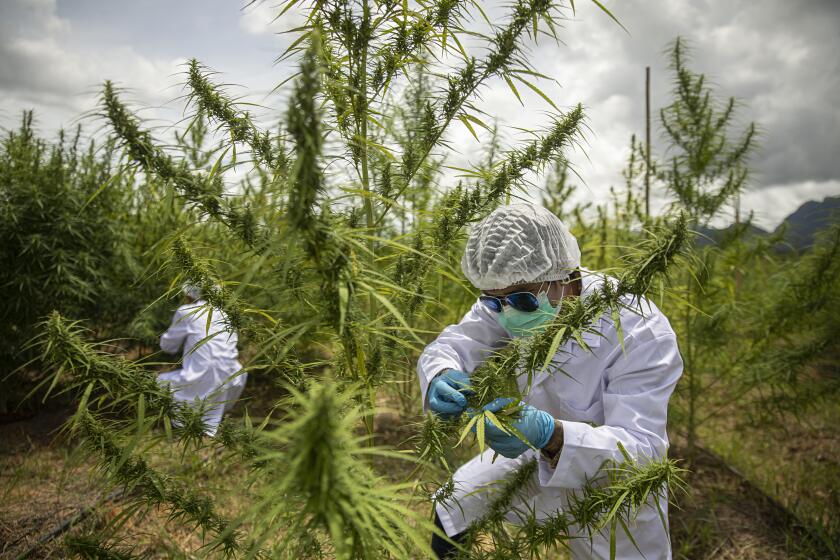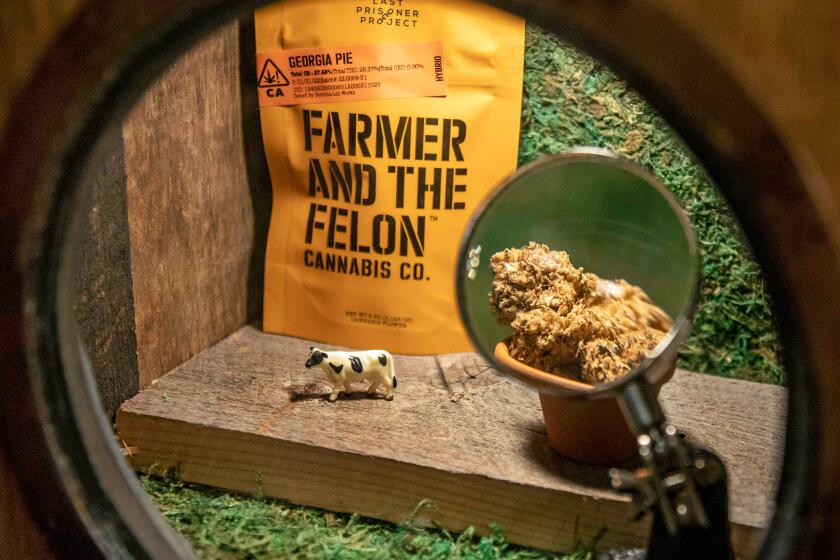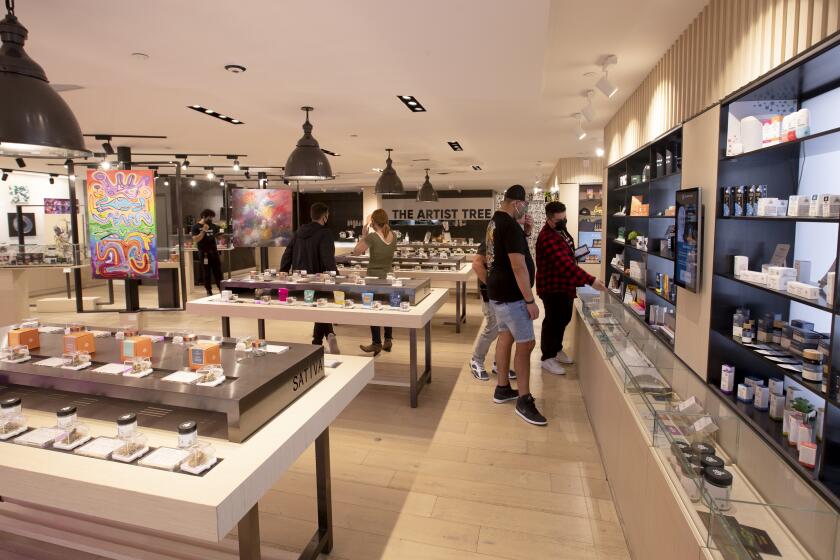Germany’s Cabinet approves plan to liberalize cannabis possession and sale

BERLIN — Germany’s Cabinet on Wednesday approved a plan to liberalize rules on cannabis, setting the scene for the European Union’s most populous member to decriminalize possession of limited amounts and allow members of “cannabis clubs” to buy the substance for recreational purposes.
The legislation is billed as the first step in a two-part plan and still needs approval by the Parliament. But the government’s approval is a stride forward for a prominent reform project of Chancellor Olaf Scholz’s socially liberal coalition, though significantly short of its original ambitions.
The bill, which the government hopes will take effect at the end of this year, foresees legalizing possession of up to 25 grams (nearly 1 ounce) of cannabis for recreational purposes and allowing individuals to grow up to three plants on their own.
German residents who are 18 and older would be allowed to join nonprofit “cannabis clubs,” with a maximum of 500 members each. The clubs would be allowed to grow cannabis for members’ personal consumption.
Individuals would be allowed to buy up to 25 grams per day, or a maximum of 50 grams per month — a figure limited to 30 grams for under-21s. Membership in multiple clubs would not be allowed. The clubs’ costs would be covered by membership fees, which would be staggered according to how much cannabis members use.
The government plans a ban on advertising or sponsoring cannabis and the clubs, and consumption won’t be allowed within about 200 yards of schools, playgrounds and sports facilities, or near cannabis club premises.
In June, Thailand became the only country in Asia to legalize marijuana, igniting a green rush that has seduced farmers, corporations and others.
Officials hope their plan will help protect consumers against contaminated products and reduce drug-related crime. Health Minister Karl Lauterbach said he expects the system to produce “very competitive” prices, “so we think that we can push back the black market well with these rules.”
At present, “we have rising consumption, problematic consumption,” Lauterbach told reporters. “It simply couldn’t have carried on like this.”
The center-right opposition argues that the government is pressing ahead with legalizing a risky drug despite European legal obstacles and expert opinion. An organization representing German judges says the plan is likely to increase rather than decrease the burden on the judicial system and could even increase demand for black-market cannabis.
Some advocates of legalization aren’t happy either.
Woody Harrelson’s Ganja Giggle Garden is like Walt Disney’s Enchanted Tiki Room for cannabis fans, complete with huge koi and an Instagram-famous parrot.
“What we’re getting from the health minister is over-regulation, a continued stigmatization of cannabis users and a much-too-tight regulatory corset, which simply makes it impossible for many, many [cannabis clubs] to work,” said Oliver Waack-Juergensen, who heads the Berlin-based High Ground “cannabis social club,” which was founded last year. He is also on the board of a national association representing such clubs.
Lauterbach dismissed the objections.
“The fact that it’s being attacked from both sides is a good sign,” the minister said. He added that “approval with much more liberalization, like for example in Holland or some American states, would have led to consumption expanding,” and that those who oppose any legalization “have no answer” to rising consumption and crime and a burgeoning black market.
The legislation is to be accompanied by a campaign meant to sensitize young people to the risks of consuming cannabis.
A proposed bill would allow for consumption of food and non-alcoholic drinks at California cannabis retailers.
The government says it plans to follow the new legislation by mapping out a second step: five-year tests of regulated commercial supply chains in select regions, which would then be scientifically evaluated.
That’s far short of its original plan last year, which foresaw allowing the sale of cannabis to adults across the country at licensed outlets. It was scaled back following talks with the EU’s executive commission.
Approaches elsewhere in Europe vary. The Netherlands combines decriminalization with little market regulation.
Dutch authorities tolerate the sale and consumption of small amounts of the substance at so-called coffeeshops, but producing and selling large amounts of it, necessary to keep the coffeeshops supplied, remains illegal. Amsterdam, long a magnet for tourists wanting to smoke weed, has been cracking down on coffeeshops.
Start your day right
Sign up for Essential California for the L.A. Times biggest news, features and recommendations in your inbox six days a week.
You may occasionally receive promotional content from the Los Angeles Times.
The Dutch government, meanwhile, has launched an experiment that it says aims to “determine whether and how controlled cannabis can be legally supplied to coffeeshops and what the effects of this would be.”
In Switzerland, authorities last year cleared the way for a pilot project allowing a few hundred people in Basel to buy cannabis from pharmacies for recreational purposes. The Czech government has been working on a plan similar to Germany’s to allow sales and recreational use of cannabis, which isn’t finalized.
Denmark’s capital, Copenhagen, has proposed legalizing weed but has been turned down by parliament. France has no plans to loosen its strict cannabis rules.
More to Read
Sign up for Essential California
The most important California stories and recommendations in your inbox every morning.
You may occasionally receive promotional content from the Los Angeles Times.













